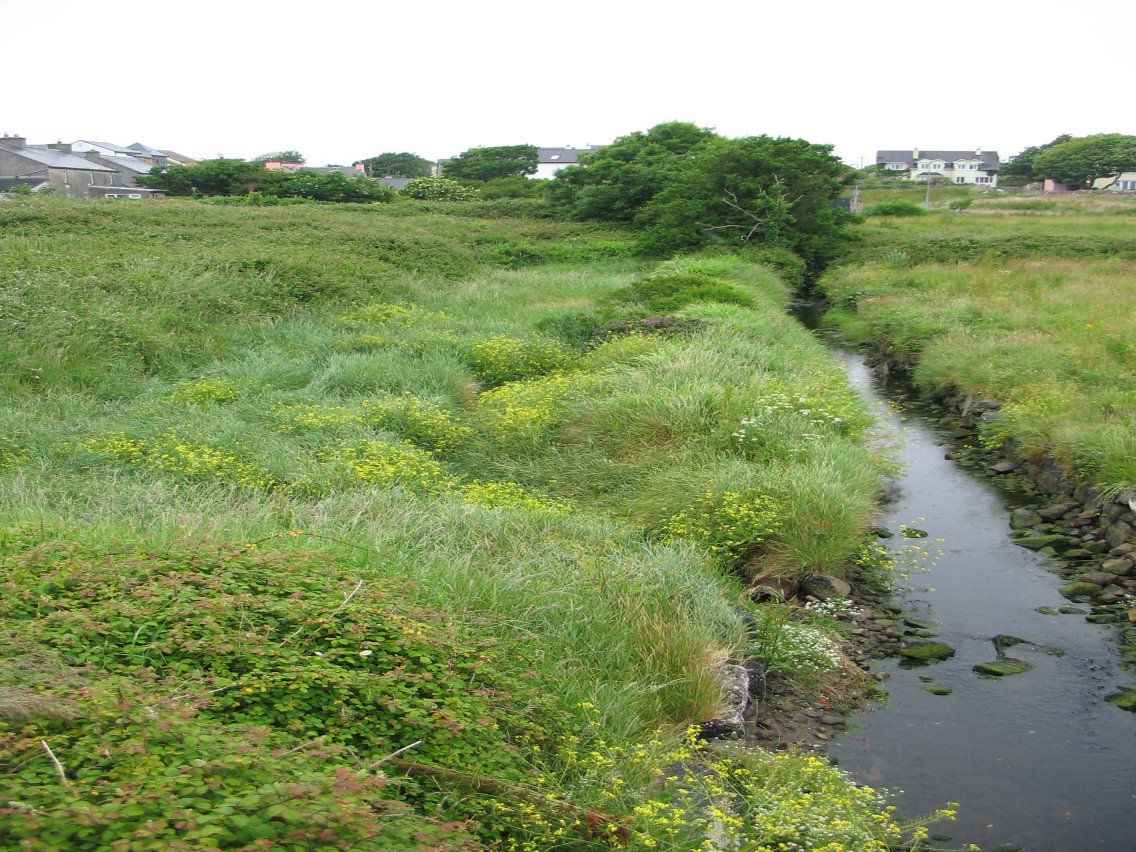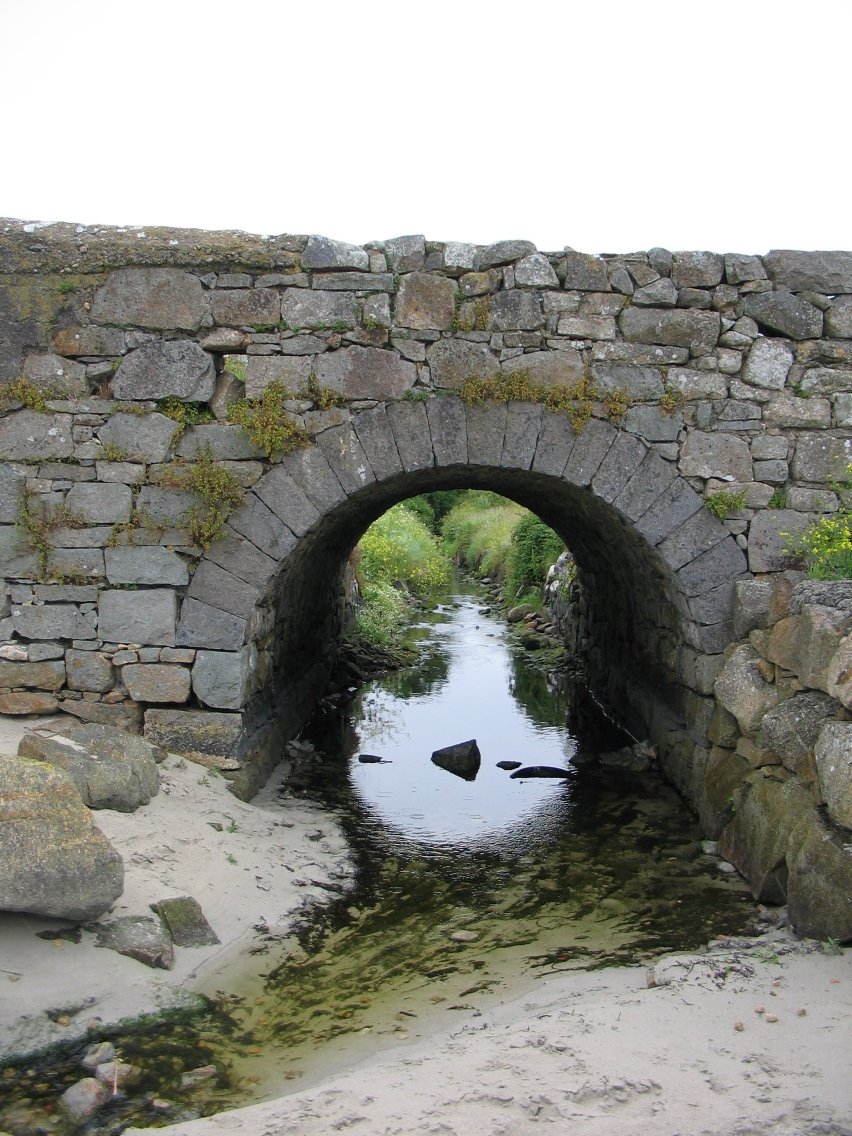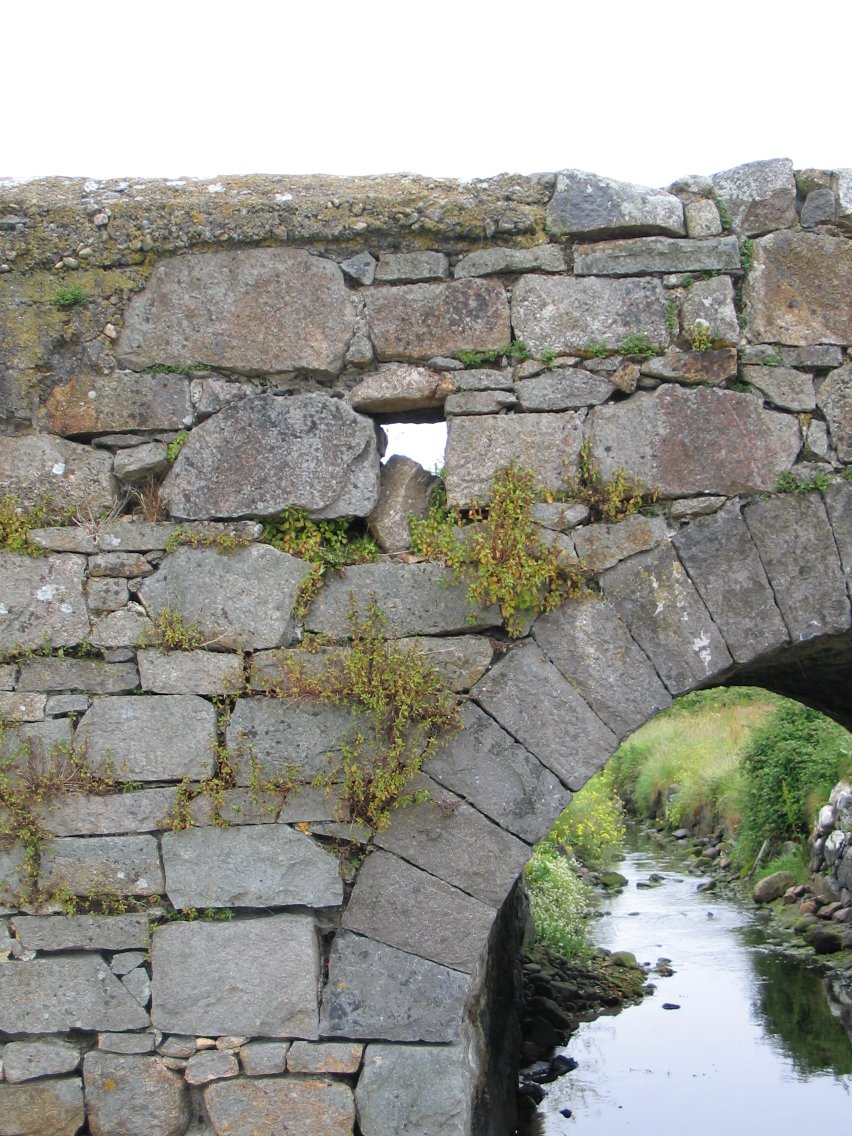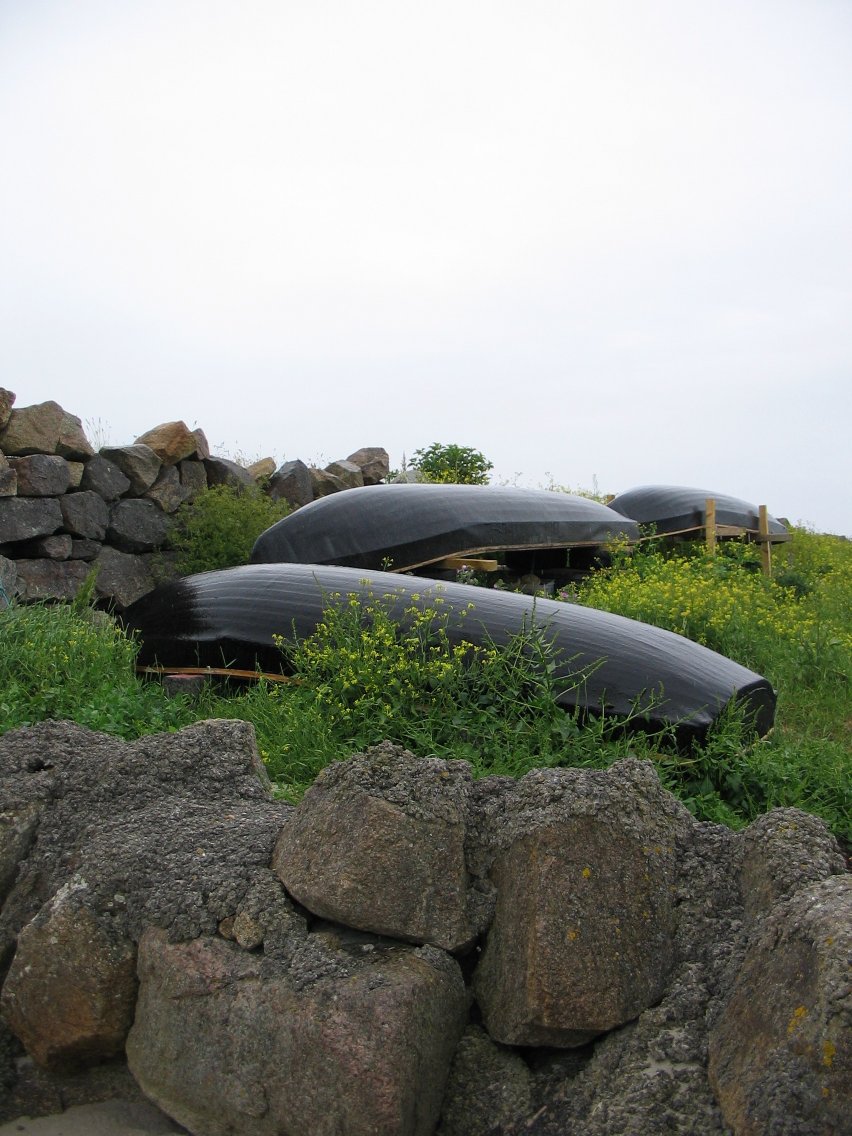An Poll Mór, Bearna
Sean Beatty very kindly allowed us to present the following piece about Bearna, Co. Galway and the ‘Poll Mór’ (big hole), on the Pier Road. Much of the information was provided by Sean.
Located on the Galway to Spiddal road, the original settlement at Bearna was concentrated in the townland of Freeport, in a predominantly linear form with some development distributed along the Pier road. Lewis notes that the pier, originally built in 1799, was rebuilt by Nimmo in 1882. He describes the village as being ‘chiefly noted for …. it’s butter …. Here are a constabulary police station and a coast guard station’. Bearna House, east of Bearna village was the seat of Nicholas Lynch*.
The placename derives from the Irish Bearna, meaning ‘gap’. This may refer to the sandy channel through to the pier.
The Poll Mór (pictured below) was a sheltered cove used by fishermen to moor their curraghs during bad weather throughout the 18th and 19th centuries. Today it presents as an overgrown level area to the west of the pier road in the ‘River Field’ (as Sean points out it is known as). Sean recounted to us how as a child he and his friends would drop stones in the ‘Poll Mór’ (at left in plate below – not visible) and it proved to be bottomless.

Above – An Poll Mór – looking north
In order to access the Poll Mór, the curragh men used a rope to pull themselves through the bridge leading to the harbour during high tides (the bridge is too narrow to use oars). The rope was passed through a hole in the wall of the bridge, secured by a timber, and was secured at the Poll Mór. Sean’s hope is that the area can some day be restored as an amenity.



*The first known member of the Lynch family to have settled in Galway was William “le Petit” de Linch in 1185; the Lynch family remained the principle and most powerful Tribal family in Galway City until well into the 19th century, dominating the office of mayor from 1485 to 1654.
Lineage.- the family of Lynch, of which was James Lynch, the inflexible mayor of Galway (see below) in 1494, is of very ancient standing in the provinces of Connaught, and ranks amongst the original settlers known by the name of “The Tribes of Galway”…. The greater portion of the Barna property came into the Lynch family by the marriage of the direct ancestor of the present proprietor with the heiress of the O’Hallorans, the foundations of whose castle are still to be seen.
Excerpt from: Burke, B. (1863) A Genealogical and Heraldic Dictionary of the Landed Gentry of Great Britain and Ireland.
The term “Lynch’s Law” and subsequently “lynching” apparently originated during the American Revolution when Charles Lynch, a Virginia justice of the peace, ordered extralegal punishment for Tory acts, but Galwegians will tell you it derived from the above Mayor of Galway, James Lynch, who condemned his son to death for the murder of a Spanish merchant. After finding no one to carry out the deed, he acted as executioner. According to the NY Times ‘Brokenhearted, he then retreated into a life of seclusion’. Regardless of the origin of the term, it clearly derives from the Galway Lynches as the above Charles and his brother (who founded Lynchburg, Virginia, USA) came from Galway originally.
More on the term ‘Lynching’ here and here.
And here Bill O Reilly got himself into a bit of bother for using the term in reference to Michelle Obama….
Intriguingly, Che Guevara was a descendant of the Lynch tribe through his father, Ernesto Rafael Guevara Lynch. So Che was in fact from Galway…
You can find out all about the Lynches and the other tribes of Galway in Hardimans History which is available on the web for free here.
This entry was posted on Thursday, July 10th, 2008 at 5:08 pm. It is filed under History, Papers & Reports and tagged with About Archaeology, Barna, Bearna, galway, History, Poll Mór.
You can follow any responses to this entry through the RSS 2.0 feed.







[…] Group, n.d. An Poll Mór, Bearna. URL http://www.mooregroup.ie/2008/07/an-poll-mor-bearna/ (accessed […]
[…] are rising up among them young men of the same calibre as those who stood in *the Bearna Baoghaol (*’the gap’) in every generation..” (MORE […]